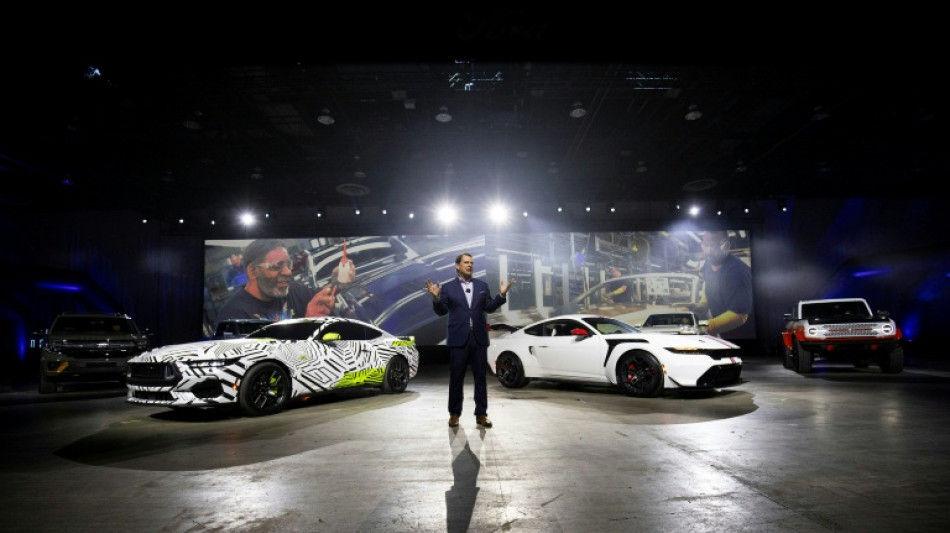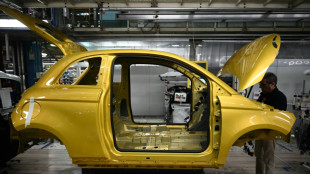

Big automakers report US sales jump on pre-tariff consumer surge
Several leading automakers including Detroit giants General Motors and Ford reported increased US car sales in the second quarter on Tuesday as consumers fast-forwarded purchases ahead of US tariffs.
Sales were particularly brisk early in the quarter as expectations of US President Donald Trump's coming tariffs dominated the news. Besides the US companies, Japanese automakers Toyota and Honda and South Korean brands Kia and Hyundai all reported increased sales compared with the 2024 stretch.
"They were able to capitalize on the tariff-induced fear and that drove sales, especially in the early part of the quarter," said Garrett Nelson, equity analyst at CFRA Research.
While the auto industry has been near the center of Trump's efforts to reset global trade, consumers have yet to see significant price increases due to tariffs.
That is because companies have relied on existing inventories that include vehicles imported before tariffs took effect. Prices are expected to rise more in the second half of 2025, but market demand and supply forces could constrain such hikes, analysts said.
GM notched a 7.3 percent rise in vehicle deliveries to 746,588 behind a continued solid performance in pickup trucks and SUVs, as well as good sales of models geared towards customers seeking affordable vehicles.
These include the Chevrolet Equinox and Chevrolet Trax, a lower-priced vehicle imported from South Korea.
Ford, meanwhile, scored a 14.2 percent jump in sales to 612,095, reflecting the boon from a popular program that offered customers employee pricing on many models.
Most of Ford's leading vehicles saw higher sales, including the best-selling pickup F-series, as well as the Ford Explorer SUV.
While Ford had lower sales of its all-electric F-150 Lightning Truck and the Mustang Mach-E, it reported a jump in hybrid vehicle sales.
Higher sales had been expected for both companies, but the increases were slightly more than projected by analysts at Edmunds.com.
At Toyota, sales jumped 7.2 percent to 666,470 autos, with double digit gains in several vehicles, including the Toyota Camry sedan and the Toyota Tacoma pickup truck.
Honda, Kia and Hyundai reported quarterly sales increases of between five and 10 percent.
But Nissan reported a 6.5 percent drop in quarterly sales to 221,441, while Jeep-owner Stellantis was projected by Edmunds to have a 12.8 percent drop to just over 300,000 vehicles.
- Pressure from consumers -
The United States imposed 25 percent tariffs on imported finished cars in early April.
The Trump administration also enacted a 25 percent tariff on imported auto parts in early May, although White House officials allowed a two-year grace period and stipulated that automakers would not face duplicative tariffs due to a 25 percent levy on imported steel and aluminum.
While retail car prices have not risen significantly, analysts at Cox Automotive last week pointed to a recent ebbing in dealer incentives as evidence of a somewhat tighter market.
Cox Automotive Chief Economist Jonathan Smoke has projected an eight percent rise in prices due to tariffs, adding that "we don't think consumers or fleet buyers are able and willing to accept that added cost," he said at a briefing last week.
Smoke predicted that uncertainty about the economy and whether the Federal Reserve will cut interest rates could lead many buyers to defer purchases.
Nelson said automakers have to be "very careful" with price hikes.
"Things have cooled off from where they were at the beginning of the quarter," he said. "Everything we're seeing suggests that consumers are still very price sensitive."
G.Wagner--FFMTZ




